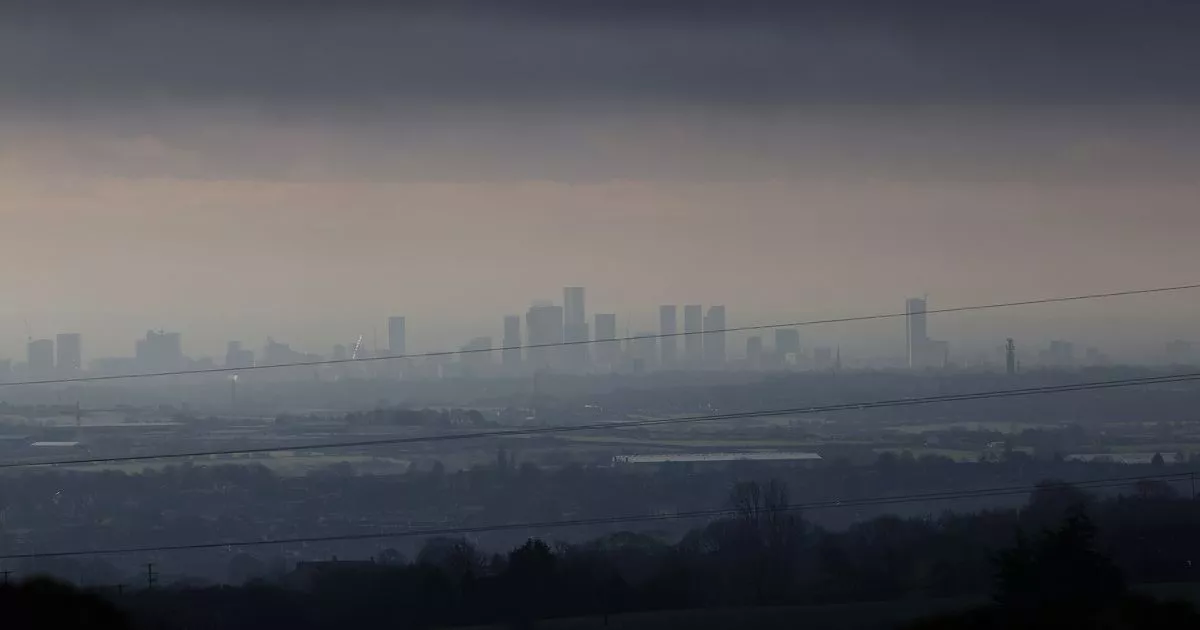A telecoms company believes government policy over 5G masts is creating more legal battles and slowing down progress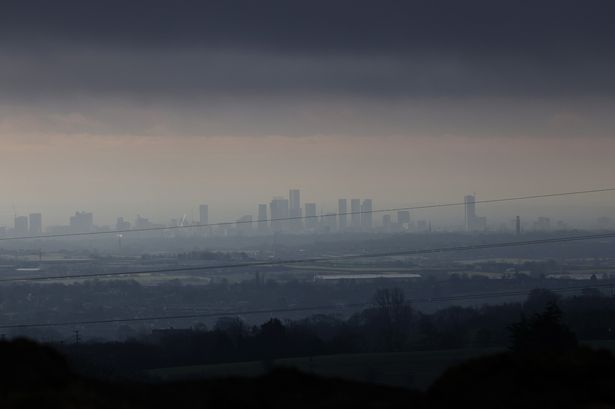 Manchester skyline taken from Scout Moor, Rochdale(Image: Sean Hansford | Manchester Evening News)
Manchester skyline taken from Scout Moor, Rochdale(Image: Sean Hansford | Manchester Evening News)
Greater Manchester is falling behind in the race for the rollout of 5G and are now facing the consequences, says one telecoms company.
APWireless, who help other companies to deliver 5G masts, believe a government policy designed to speed up the UK’s 5G rollout is backfiring. In 2017, the government changed the rules so that telecom companies could pay landowners – like councils, NHS trusts, businesses and even sports clubs – much less to host mobile phone masts on their land.
The idea was to cut costs and make it cheaper to roll out 5G.
Some landowners pushed back, refusing to accept the new lower payments, according to APWireless, with some forced to pay mobile operators to host their infrastructure. Others ended up in court, fighting over what they saw as unfair terms.
This has resulted in mobile operators taking more and more cases to tribunal to force access onto sites.
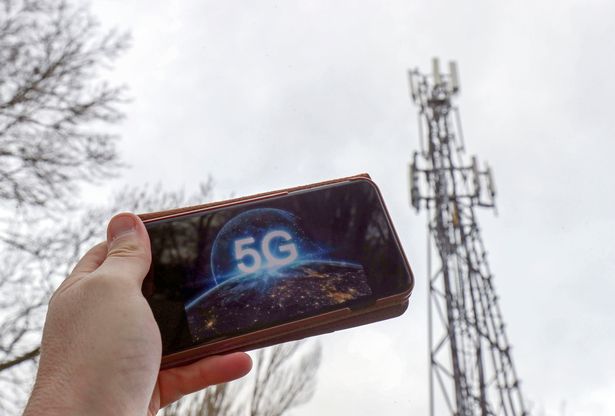 5G mast(Image: PA)
5G mast(Image: PA)
Due to the 2017 reforms to the Electronic Communications Code, the number of legal disputes about mobile masts has ‘exploded’ and slowing down the 5G rollout in Greater Manchester, tech bosses have claimed.
With disputes between landowners and telecoms companies across the city-region continuing, Manchester’s 5G download speeds are falling behind other UK cities, according to recent data.
The average speed in the first quarter of 2025 was 135.9 Mbps in Greater Manchester compared to 185 Mbps in Glasgow and 149 Mbps in Leeds. As legal rows continue, that gap is only expected to grow.
Despite these claims, an Ofcom report shows that 5G connectivity has improved in Greater Manchester Local Authorities since May 2022. The Connected Nations Report details that 5G capacity is almost at 100 per cent from at least one mobile network operator in all 10 boroughs across the city-region.
However, 5G coverage from all four of the mobile network operators is not as strong, meaning some mobile devices will work better than others depending on what network they’re with. In Bolton, Rochdale, Stockport, Trafford and Wigan, the total area of the borough with network coverage from all four operators is 55 pc or less.
What a lack of connectivity does to a town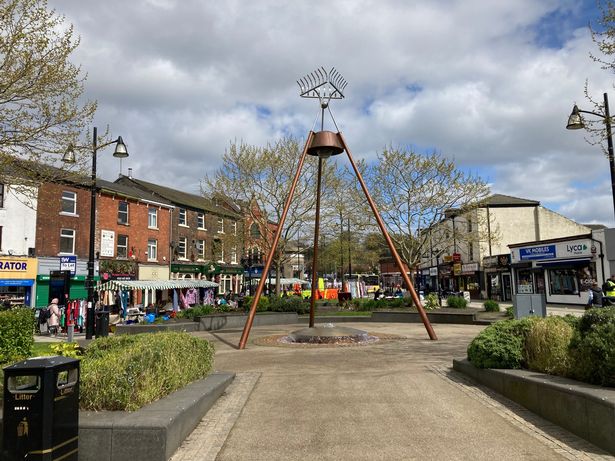 Middleton town centre(Image: LDRS)
Middleton town centre(Image: LDRS)
The Manchester Evening News recently visited Middleton – which has become a signal dead spot.
Locals have reported not being able to take phone calls and businesses said they’ve struggled to take card payments. The reason for these issues over the last three years is damage to the telecoms mast on top of Warwick Mill.
Many residents were baffled how a town six miles from Manchester city centre struggles to get mobile phone signal. They just want to be able to make calls and use the internet like everyone expects to do in 2025.
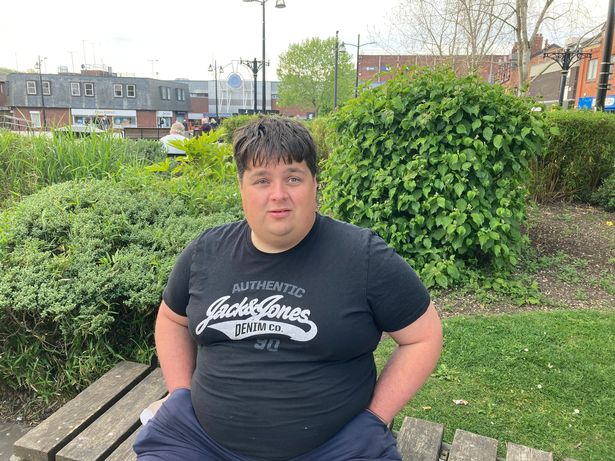 Ashley Wakefield, sitting in Middleton town centre(Image: LDRS)
Ashley Wakefield, sitting in Middleton town centre(Image: LDRS)
Town centre resident Ashley Wakefield told the M.E.N: “It can be a struggle to get 4G and ring people. I’m a foster carer, so it’s a real problem for me.
“There have been times I’ve had to go into the shopping centre to use the Wi-Fi to get my bus pass to work. It’s super inconvenient.
“It has been a big thing for a while and it’s spoken about a lot as an issue.”
So many people said they’d have trouble using their phones, but for businesses it is a bigger issue. Many people expect to use their bank cards for buying goods, but when the internet is needed to process the transactions, there are problems.
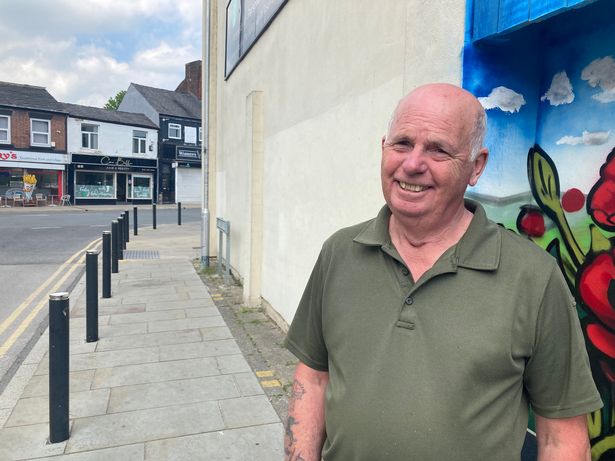 John Proctor, sharing an anecdote about the signal problems in Middleton(Image: LDRS)
John Proctor, sharing an anecdote about the signal problems in Middleton(Image: LDRS)
John Proctor, who works in Middleton, recalled: “I’ve had shopkeepers shouting me back saying it hasn’t got through. He came up the road with the machine in his hand.
“It was embarrassing because I bought a mate a sandwich and it looked like I couldn’t pay.”
Ali Salam, who runs Yours Phone Shop on the high street, confirmed transactions for card payments can be a struggle.
The businessman said: “I’ve been told that the signal is a problem. Lots of people say it’s because it’s a hilly area here but there isn’t a lot of info as to why it’s a problem.
“If you ask 10 people about this, nine will be complaining. I get people asking to sort their phones as a result. Sometimes transactions are tricky for mobile banking.”
Next steps Thomas Evans, executive vice president of APWireless(Image: APWireless)
Thomas Evans, executive vice president of APWireless(Image: APWireless)
APWireless fears that if new legislation – Part 2 of the Product Security and Telecommunications Infrastructure Act – is implemented this year, the same rules of reducing rents would apply to 15,000 more sites across the UK.
They have warned that if the government presses ahead, more landowners will push back, more cases will end up in court, and 5G rollout in Manchester and across the UK will slow even further.
Thomas Evans, executive vice president of APWireless, said: “Greater Manchester has the talent, the tech sector, and the ambition to lead the UK’s digital future. But right now, the rollout of 5G is being held back by outdated policy – and local communities are paying the price.
“In 2017, the Government changed how landowners are paid for hosting mobile masts. The new system cut rents by as much as 90 pc, even for public bodies like councils and NHS trusts. That’s led to a surge in legal disputes – more than a dozen in Greater Manchester alone – slowing down progress and making it harder to secure the sites we need to expand 5G.
“Now, ministers want to extend this broken approach to 15,000 more locations through Part 2 of the Product Security and Telecommunications Infrastructure Act. It sounds very technical, but if the current rules are already fuelling delays and costly court cases, expanding them won’t solve the problem – it’ll make it worse.
“It’s time for a reset. If the Government wants to see real progress on 5G – especially outside London – it must pause, review the facts, and build a system that supports investment, not conflict.”
APWireless wants to see the government review this policy to ‘fix what is broke’, rather than ‘pushing landowners away and triggering more legal battles’.
What the government says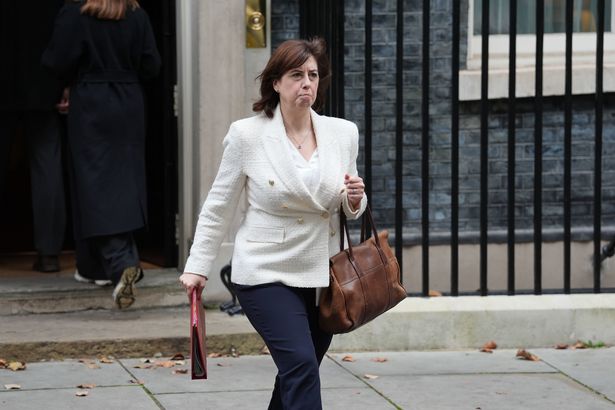 Leader of the House of Commons Lucy Powell leaves 10 Downing Street, London(Image: Lucy North/PA Wire)
Leader of the House of Commons Lucy Powell leaves 10 Downing Street, London(Image: Lucy North/PA Wire)
In 2022, before the Labour government came to power, Labour MP for Manchester Central and former Shadow Digital Secretary Lucy Powell, warned that the policy was likely to “slow down, rather than speed up, the broadband and 5G roll-out.
Now in her new role as Leader of the House of Commons she is covering a different brief, but the Department for Science, Innovation and Technology are pushing forward with the policy.
A DSIT spokesperson said: “The facts speak for themselves. Over the past three years, coverage in Manchester alone has doubled and 5G is now available to 94 pc of premises in the city.
“Our priority is to continue delivering high quality 5G networks critical to boosting local growth and improving public services in cities like Manchester, as part of our Plan for Change.”
